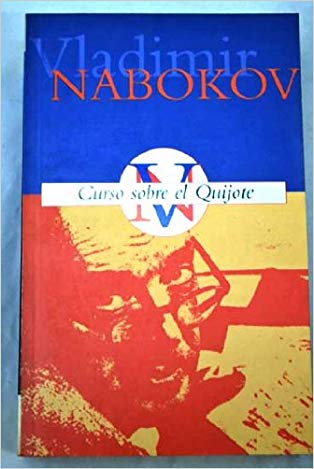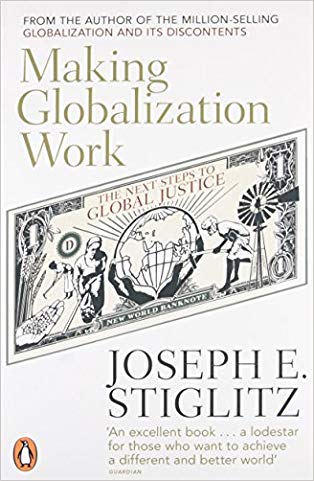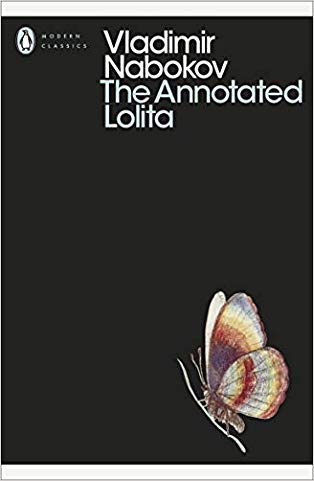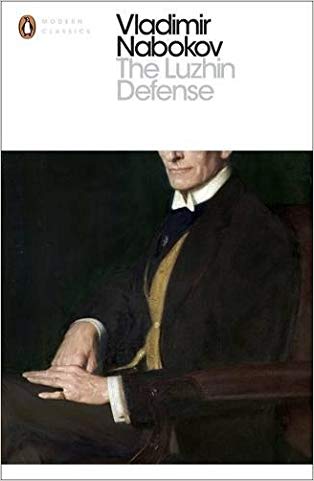Ir al contenido
Resultados de la búsqueda para: Nabokov Vladimir
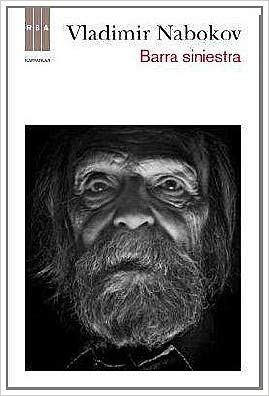 Barra siniestra, la novela más abiertamente política de Vladimir Nabokov, narra el lento e inevitable descenso a los infiernos al que se ve arrastrado Adam Krug, un profesor universitario de filosofía que acaba de perder a su esposa y que intenta resistirse a los designios del régimen totalitario bajo el que vive. Tomando como modelo de referencia los primeros tiempos de la andadura soviética, Nabokov nos ofrece una despiadada sátira sobre lo absurdo de las dictaduras, en el contexto de un país imaginario en el que sus ciudadanos viven situaciones de pesadilla prácticamente irreales. Sin embargo, esta novela de personajes oscuros y desamparados y de situaciones kafkianas es mucho más que una implacable crítica política. En Barra siniestra no faltan el humor negro ni la constante búsqueda de nuevos métodos de expresión narrativa, así como tampoco los habituales guiños y juegos lingüísticos del autor, o sus ejercicios metaliterarios. Nabokov en estado puro. «Incluso el menor de sus escritos ofrece una especie de placer propio de otros tiempos: es un brujo brillante que hace de cada frase un acontecimiento potencialmente mágico». John Updike
Barra siniestra, la novela más abiertamente política de Vladimir Nabokov, narra el lento e inevitable descenso a los infiernos al que se ve arrastrado Adam Krug, un profesor universitario de filosofía que acaba de perder a su esposa y que intenta resistirse a los designios del régimen totalitario bajo el que vive. Tomando como modelo de referencia los primeros tiempos de la andadura soviética, Nabokov nos ofrece una despiadada sátira sobre lo absurdo de las dictaduras, en el contexto de un país imaginario en el que sus ciudadanos viven situaciones de pesadilla prácticamente irreales. Sin embargo, esta novela de personajes oscuros y desamparados y de situaciones kafkianas es mucho más que una implacable crítica política. En Barra siniestra no faltan el humor negro ni la constante búsqueda de nuevos métodos de expresión narrativa, así como tampoco los habituales guiños y juegos lingüísticos del autor, o sus ejercicios metaliterarios. Nabokov en estado puro. «Incluso el menor de sus escritos ofrece una especie de placer propio de otros tiempos: es un brujo brillante que hace de cada frase un acontecimiento potencialmente mágico». John Updike
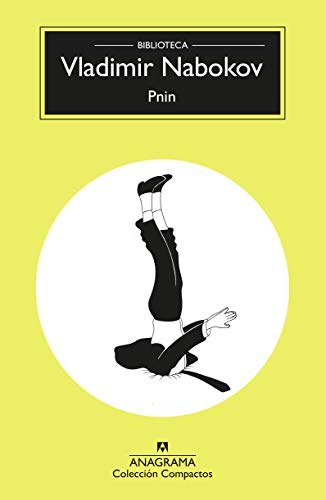

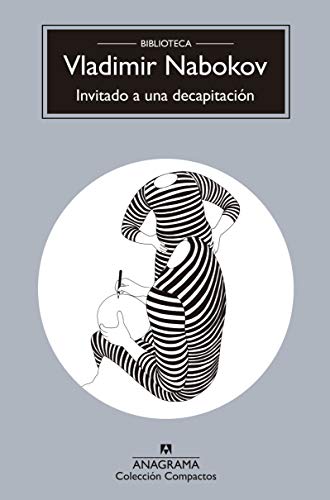

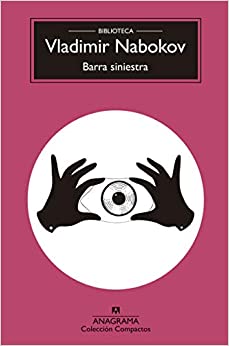

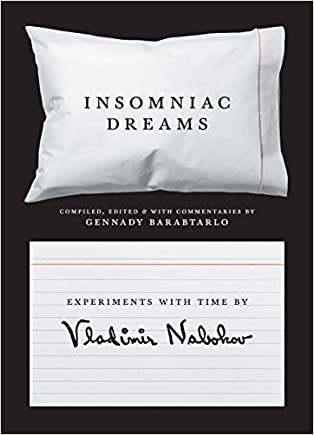

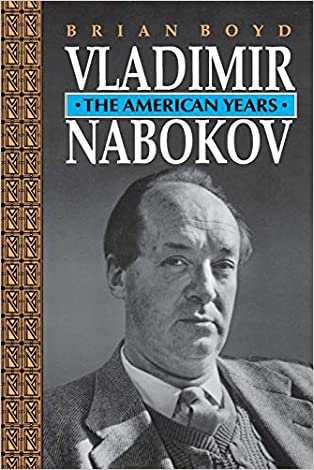 The story of Nabokov's life continues with his arrival in the United States in 1940. He found that supporting himself and his family was not easy--until the astonishing success of Lolita catapulted him to world fame and financial security.
The story of Nabokov's life continues with his arrival in the United States in 1940. He found that supporting himself and his family was not easy--until the astonishing success of Lolita catapulted him to world fame and financial security.
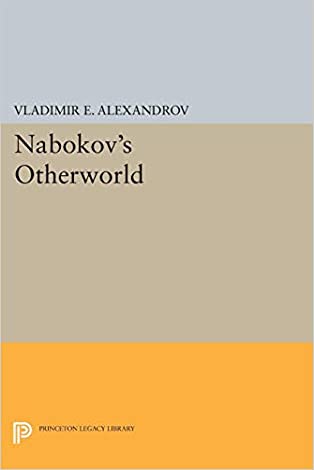 A major reexamination of the novelist Vladimir Nabokov as "literary gamesman," this book systematically shows that behind his ironic manipulation of narrative and his puzzle-like treatment of detail there lies an aesthetic rooted in his intuition of a transcendent realm and in his consequent redefinition of "nature" and "artifice" as synonyms. Beginning with Nabokov's discursive writings, Vladimir Alexandrov finds his world view centered on the experience of epiphany--characterized by a sudden fusion of varied sensory data and memories, a feeling of timelessness, and an intuition of immortality--which grants the true artist intimations of an "otherworld." Readings of The Defense, Invitation to a Beheading, The Gift, The Real Life of Sebastian Knight, Lolita, and Pale Fire reveal the epiphanic experience to be a touchstone for the characters' metaphysical insightfulness, moral makeup, and aesthetic sensibility, and to be a structural model for how the narratives themselves are fashioned and for the nature of the reader's involvement with the text. In his conclusion, Alexandrov outlines several of Nabokov's possible intellectual and artistic debts to the brilliant and variegated culture that flourished in Russia on the eve of the Revolution. Nabokov emerges as less alienated from Russian culture than most of his emigre readers believed, and as less "modernist" than many of his Western readers still imagine. "Alexandrov's work is distinctive in that it applies an `otherworld' hypothesis as a consistent context to Nabokov's novels. The approach is obviously a fruitful one. Alexandrov is innovative in rooting Nabokov's ethics and aesthetics in the otherwordly and contributes greatly to Nabokov studies by examining certain key terms such as `commonsense,' `nature,' and `artifice.' In general Alexandrov's study leads to a much clearer understanding of Nabokov's metaphysics."--D. Barton Johnson, University of California, Santa BarbaraOriginally published in 1991.The Princeton Legacy Library uses the latest print-on-demand technology to again make available previously out-of-print books from the distinguished backlist of Princeton University Press. These editions preserve the original texts of these important books while presenting them in durable paperback and hardcover editions. The goal of the Princeton Legacy Library is to vastly increase access to the rich scholarly heritage found in the thousands of books published by Princeton University Press since its founding in 1905.
A major reexamination of the novelist Vladimir Nabokov as "literary gamesman," this book systematically shows that behind his ironic manipulation of narrative and his puzzle-like treatment of detail there lies an aesthetic rooted in his intuition of a transcendent realm and in his consequent redefinition of "nature" and "artifice" as synonyms. Beginning with Nabokov's discursive writings, Vladimir Alexandrov finds his world view centered on the experience of epiphany--characterized by a sudden fusion of varied sensory data and memories, a feeling of timelessness, and an intuition of immortality--which grants the true artist intimations of an "otherworld." Readings of The Defense, Invitation to a Beheading, The Gift, The Real Life of Sebastian Knight, Lolita, and Pale Fire reveal the epiphanic experience to be a touchstone for the characters' metaphysical insightfulness, moral makeup, and aesthetic sensibility, and to be a structural model for how the narratives themselves are fashioned and for the nature of the reader's involvement with the text. In his conclusion, Alexandrov outlines several of Nabokov's possible intellectual and artistic debts to the brilliant and variegated culture that flourished in Russia on the eve of the Revolution. Nabokov emerges as less alienated from Russian culture than most of his emigre readers believed, and as less "modernist" than many of his Western readers still imagine. "Alexandrov's work is distinctive in that it applies an `otherworld' hypothesis as a consistent context to Nabokov's novels. The approach is obviously a fruitful one. Alexandrov is innovative in rooting Nabokov's ethics and aesthetics in the otherwordly and contributes greatly to Nabokov studies by examining certain key terms such as `commonsense,' `nature,' and `artifice.' In general Alexandrov's study leads to a much clearer understanding of Nabokov's metaphysics."--D. Barton Johnson, University of California, Santa BarbaraOriginally published in 1991.The Princeton Legacy Library uses the latest print-on-demand technology to again make available previously out-of-print books from the distinguished backlist of Princeton University Press. These editions preserve the original texts of these important books while presenting them in durable paperback and hardcover editions. The goal of the Princeton Legacy Library is to vastly increase access to the rich scholarly heritage found in the thousands of books published by Princeton University Press since its founding in 1905.
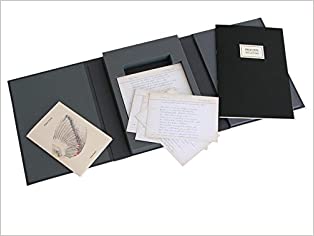

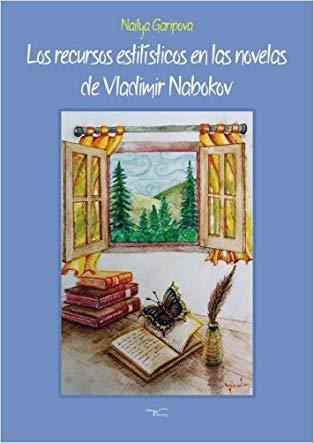

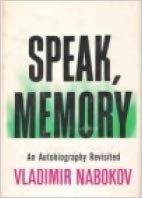 Vladimir Nabokov no podía escribir una autobiografía corriente, y "Habla, memoria" lo demuestra. A través de una serie de relatos largos, Nabokov, con el pretexto de contar su vida, construye un libro tan ameno, original, divertido y estilizado como sus novelas. Nabokov rememora aquí sus meditaciones infantiles en el retrete, sus vacaciones en la finca campestre de la familia, sus amoríos adolescentes con Tamara en los museos de San Petersburgo; narra las peripecias de su huida de las huestes de Lenin y de su exilio europeo; escribe un homenaje a la honestidad política de su padre y a la belleza y ternura de su madre; pero lo que menos importa son los temas, porque de lo que se trata al fin y al cabo es de celebrar un festín de ingenio e inteligencia, de mordacidad despiadada y de nostalgia desgarradora, y en el que Nabokov es fiel a los consejos que daba a sus estudiantes de literatura: «¡Acariciad los detalles! ¡Los divinos detalles!» Esta edición definitiva de "Habla, memoria", corregida y aumentada por el autor, resulta, pues, una excelente introducción a Nabokov, una antología, un conjunto de pistas y claves que permitirán hacer una lectura más intensa y profunda de sus novelas. Y es, también, un elogio de sus grandes pasiones: la literatura, las mariposas, el ajedrez y, ¡oh sorpresa!, la familia.
Vladimir Nabokov no podía escribir una autobiografía corriente, y "Habla, memoria" lo demuestra. A través de una serie de relatos largos, Nabokov, con el pretexto de contar su vida, construye un libro tan ameno, original, divertido y estilizado como sus novelas. Nabokov rememora aquí sus meditaciones infantiles en el retrete, sus vacaciones en la finca campestre de la familia, sus amoríos adolescentes con Tamara en los museos de San Petersburgo; narra las peripecias de su huida de las huestes de Lenin y de su exilio europeo; escribe un homenaje a la honestidad política de su padre y a la belleza y ternura de su madre; pero lo que menos importa son los temas, porque de lo que se trata al fin y al cabo es de celebrar un festín de ingenio e inteligencia, de mordacidad despiadada y de nostalgia desgarradora, y en el que Nabokov es fiel a los consejos que daba a sus estudiantes de literatura: «¡Acariciad los detalles! ¡Los divinos detalles!» Esta edición definitiva de "Habla, memoria", corregida y aumentada por el autor, resulta, pues, una excelente introducción a Nabokov, una antología, un conjunto de pistas y claves que permitirán hacer una lectura más intensa y profunda de sus novelas. Y es, también, un elogio de sus grandes pasiones: la literatura, las mariposas, el ajedrez y, ¡oh sorpresa!, la familia.
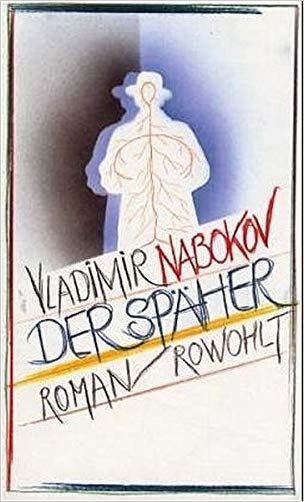

 Barra siniestra, la novela más abiertamente política de Vladimir Nabokov, narra el lento e inevitable descenso a los infiernos al que se ve arrastrado Adam Krug, un profesor universitario de filosofía que acaba de perder a su esposa y que intenta resistirse a los designios del régimen totalitario bajo el que vive. Tomando como modelo de referencia los primeros tiempos de la andadura soviética, Nabokov nos ofrece una despiadada sátira sobre lo absurdo de las dictaduras, en el contexto de un país imaginario en el que sus ciudadanos viven situaciones de pesadilla prácticamente irreales. Sin embargo, esta novela de personajes oscuros y desamparados y de situaciones kafkianas es mucho más que una implacable crítica política. En Barra siniestra no faltan el humor negro ni la constante búsqueda de nuevos métodos de expresión narrativa, así como tampoco los habituales guiños y juegos lingüísticos del autor, o sus ejercicios metaliterarios. Nabokov en estado puro. «Incluso el menor de sus escritos ofrece una especie de placer propio de otros tiempos: es un brujo brillante que hace de cada frase un acontecimiento potencialmente mágico». John Updike
Barra siniestra, la novela más abiertamente política de Vladimir Nabokov, narra el lento e inevitable descenso a los infiernos al que se ve arrastrado Adam Krug, un profesor universitario de filosofía que acaba de perder a su esposa y que intenta resistirse a los designios del régimen totalitario bajo el que vive. Tomando como modelo de referencia los primeros tiempos de la andadura soviética, Nabokov nos ofrece una despiadada sátira sobre lo absurdo de las dictaduras, en el contexto de un país imaginario en el que sus ciudadanos viven situaciones de pesadilla prácticamente irreales. Sin embargo, esta novela de personajes oscuros y desamparados y de situaciones kafkianas es mucho más que una implacable crítica política. En Barra siniestra no faltan el humor negro ni la constante búsqueda de nuevos métodos de expresión narrativa, así como tampoco los habituales guiños y juegos lingüísticos del autor, o sus ejercicios metaliterarios. Nabokov en estado puro. «Incluso el menor de sus escritos ofrece una especie de placer propio de otros tiempos: es un brujo brillante que hace de cada frase un acontecimiento potencialmente mágico». John Updike



 The story of Nabokov's life continues with his arrival in the United States in 1940. He found that supporting himself and his family was not easy--until the astonishing success of Lolita catapulted him to world fame and financial security.
The story of Nabokov's life continues with his arrival in the United States in 1940. He found that supporting himself and his family was not easy--until the astonishing success of Lolita catapulted him to world fame and financial security. A major reexamination of the novelist Vladimir Nabokov as "literary gamesman," this book systematically shows that behind his ironic manipulation of narrative and his puzzle-like treatment of detail there lies an aesthetic rooted in his intuition of a transcendent realm and in his consequent redefinition of "nature" and "artifice" as synonyms. Beginning with Nabokov's discursive writings, Vladimir Alexandrov finds his world view centered on the experience of epiphany--characterized by a sudden fusion of varied sensory data and memories, a feeling of timelessness, and an intuition of immortality--which grants the true artist intimations of an "otherworld." Readings of The Defense, Invitation to a Beheading, The Gift, The Real Life of Sebastian Knight, Lolita, and Pale Fire reveal the epiphanic experience to be a touchstone for the characters' metaphysical insightfulness, moral makeup, and aesthetic sensibility, and to be a structural model for how the narratives themselves are fashioned and for the nature of the reader's involvement with the text. In his conclusion, Alexandrov outlines several of Nabokov's possible intellectual and artistic debts to the brilliant and variegated culture that flourished in Russia on the eve of the Revolution. Nabokov emerges as less alienated from Russian culture than most of his emigre readers believed, and as less "modernist" than many of his Western readers still imagine. "Alexandrov's work is distinctive in that it applies an `otherworld' hypothesis as a consistent context to Nabokov's novels. The approach is obviously a fruitful one. Alexandrov is innovative in rooting Nabokov's ethics and aesthetics in the otherwordly and contributes greatly to Nabokov studies by examining certain key terms such as `commonsense,' `nature,' and `artifice.' In general Alexandrov's study leads to a much clearer understanding of Nabokov's metaphysics."--D. Barton Johnson, University of California, Santa BarbaraOriginally published in 1991.The Princeton Legacy Library uses the latest print-on-demand technology to again make available previously out-of-print books from the distinguished backlist of Princeton University Press. These editions preserve the original texts of these important books while presenting them in durable paperback and hardcover editions. The goal of the Princeton Legacy Library is to vastly increase access to the rich scholarly heritage found in the thousands of books published by Princeton University Press since its founding in 1905.
A major reexamination of the novelist Vladimir Nabokov as "literary gamesman," this book systematically shows that behind his ironic manipulation of narrative and his puzzle-like treatment of detail there lies an aesthetic rooted in his intuition of a transcendent realm and in his consequent redefinition of "nature" and "artifice" as synonyms. Beginning with Nabokov's discursive writings, Vladimir Alexandrov finds his world view centered on the experience of epiphany--characterized by a sudden fusion of varied sensory data and memories, a feeling of timelessness, and an intuition of immortality--which grants the true artist intimations of an "otherworld." Readings of The Defense, Invitation to a Beheading, The Gift, The Real Life of Sebastian Knight, Lolita, and Pale Fire reveal the epiphanic experience to be a touchstone for the characters' metaphysical insightfulness, moral makeup, and aesthetic sensibility, and to be a structural model for how the narratives themselves are fashioned and for the nature of the reader's involvement with the text. In his conclusion, Alexandrov outlines several of Nabokov's possible intellectual and artistic debts to the brilliant and variegated culture that flourished in Russia on the eve of the Revolution. Nabokov emerges as less alienated from Russian culture than most of his emigre readers believed, and as less "modernist" than many of his Western readers still imagine. "Alexandrov's work is distinctive in that it applies an `otherworld' hypothesis as a consistent context to Nabokov's novels. The approach is obviously a fruitful one. Alexandrov is innovative in rooting Nabokov's ethics and aesthetics in the otherwordly and contributes greatly to Nabokov studies by examining certain key terms such as `commonsense,' `nature,' and `artifice.' In general Alexandrov's study leads to a much clearer understanding of Nabokov's metaphysics."--D. Barton Johnson, University of California, Santa BarbaraOriginally published in 1991.The Princeton Legacy Library uses the latest print-on-demand technology to again make available previously out-of-print books from the distinguished backlist of Princeton University Press. These editions preserve the original texts of these important books while presenting them in durable paperback and hardcover editions. The goal of the Princeton Legacy Library is to vastly increase access to the rich scholarly heritage found in the thousands of books published by Princeton University Press since its founding in 1905.

 Vladimir Nabokov no podía escribir una autobiografía corriente, y "Habla, memoria" lo demuestra. A través de una serie de relatos largos, Nabokov, con el pretexto de contar su vida, construye un libro tan ameno, original, divertido y estilizado como sus novelas. Nabokov rememora aquí sus meditaciones infantiles en el retrete, sus vacaciones en la finca campestre de la familia, sus amoríos adolescentes con Tamara en los museos de San Petersburgo; narra las peripecias de su huida de las huestes de Lenin y de su exilio europeo; escribe un homenaje a la honestidad política de su padre y a la belleza y ternura de su madre; pero lo que menos importa son los temas, porque de lo que se trata al fin y al cabo es de celebrar un festín de ingenio e inteligencia, de mordacidad despiadada y de nostalgia desgarradora, y en el que Nabokov es fiel a los consejos que daba a sus estudiantes de literatura: «¡Acariciad los detalles! ¡Los divinos detalles!» Esta edición definitiva de "Habla, memoria", corregida y aumentada por el autor, resulta, pues, una excelente introducción a Nabokov, una antología, un conjunto de pistas y claves que permitirán hacer una lectura más intensa y profunda de sus novelas. Y es, también, un elogio de sus grandes pasiones: la literatura, las mariposas, el ajedrez y, ¡oh sorpresa!, la familia.
Vladimir Nabokov no podía escribir una autobiografía corriente, y "Habla, memoria" lo demuestra. A través de una serie de relatos largos, Nabokov, con el pretexto de contar su vida, construye un libro tan ameno, original, divertido y estilizado como sus novelas. Nabokov rememora aquí sus meditaciones infantiles en el retrete, sus vacaciones en la finca campestre de la familia, sus amoríos adolescentes con Tamara en los museos de San Petersburgo; narra las peripecias de su huida de las huestes de Lenin y de su exilio europeo; escribe un homenaje a la honestidad política de su padre y a la belleza y ternura de su madre; pero lo que menos importa son los temas, porque de lo que se trata al fin y al cabo es de celebrar un festín de ingenio e inteligencia, de mordacidad despiadada y de nostalgia desgarradora, y en el que Nabokov es fiel a los consejos que daba a sus estudiantes de literatura: «¡Acariciad los detalles! ¡Los divinos detalles!» Esta edición definitiva de "Habla, memoria", corregida y aumentada por el autor, resulta, pues, una excelente introducción a Nabokov, una antología, un conjunto de pistas y claves que permitirán hacer una lectura más intensa y profunda de sus novelas. Y es, también, un elogio de sus grandes pasiones: la literatura, las mariposas, el ajedrez y, ¡oh sorpresa!, la familia.
